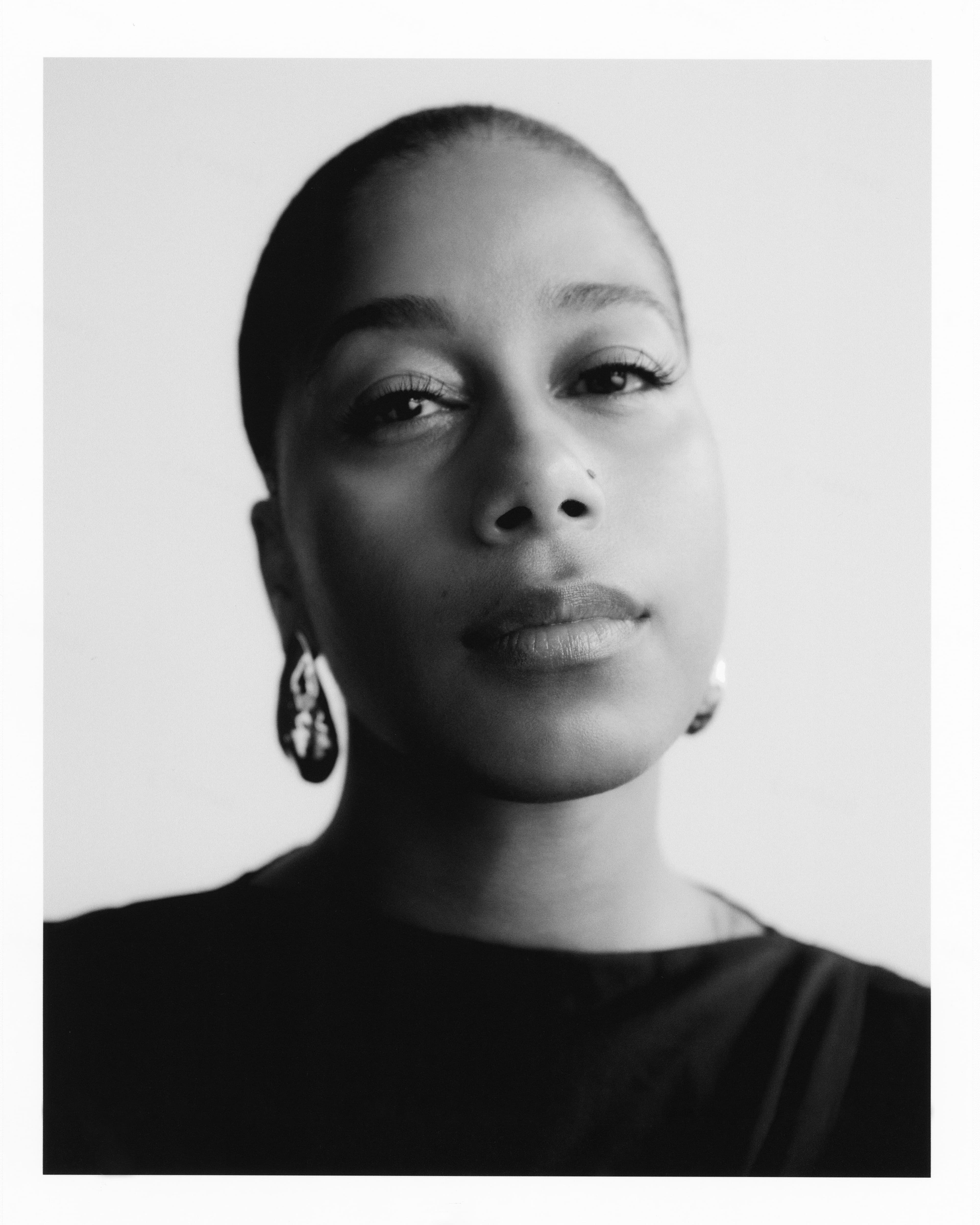
Top by Christopher John Rogers. Earrings by Alexis Bittar.
Aja Monet’s Poetry Is a Guide to Living
It was late fall, and two weeks after Aja Monet received her first Grammy nomination for Best Spoken Word Poetry Album for her debut album when the poems do what they do. She was on tour but at the same time had been organizing in solidarity with Palestinian liberation. She was feeling grateful for her nomination, but she acknowledged it was a “weird time to celebrate“ as she grappled with what it means to be a poet, a witness, and a human in the midst of destruction, death, and the internet.
“I’m still processing a lot as just a person,“ she told me over the phone. “I think poetry is more about a way of life than it is a specific kind of form or structure. It’s a way of accessing and processing the truth of being here. And right now I’m just processing what it is to be alive as someone that has lost people and is witnessing the world losing people in very horrifying ways.“
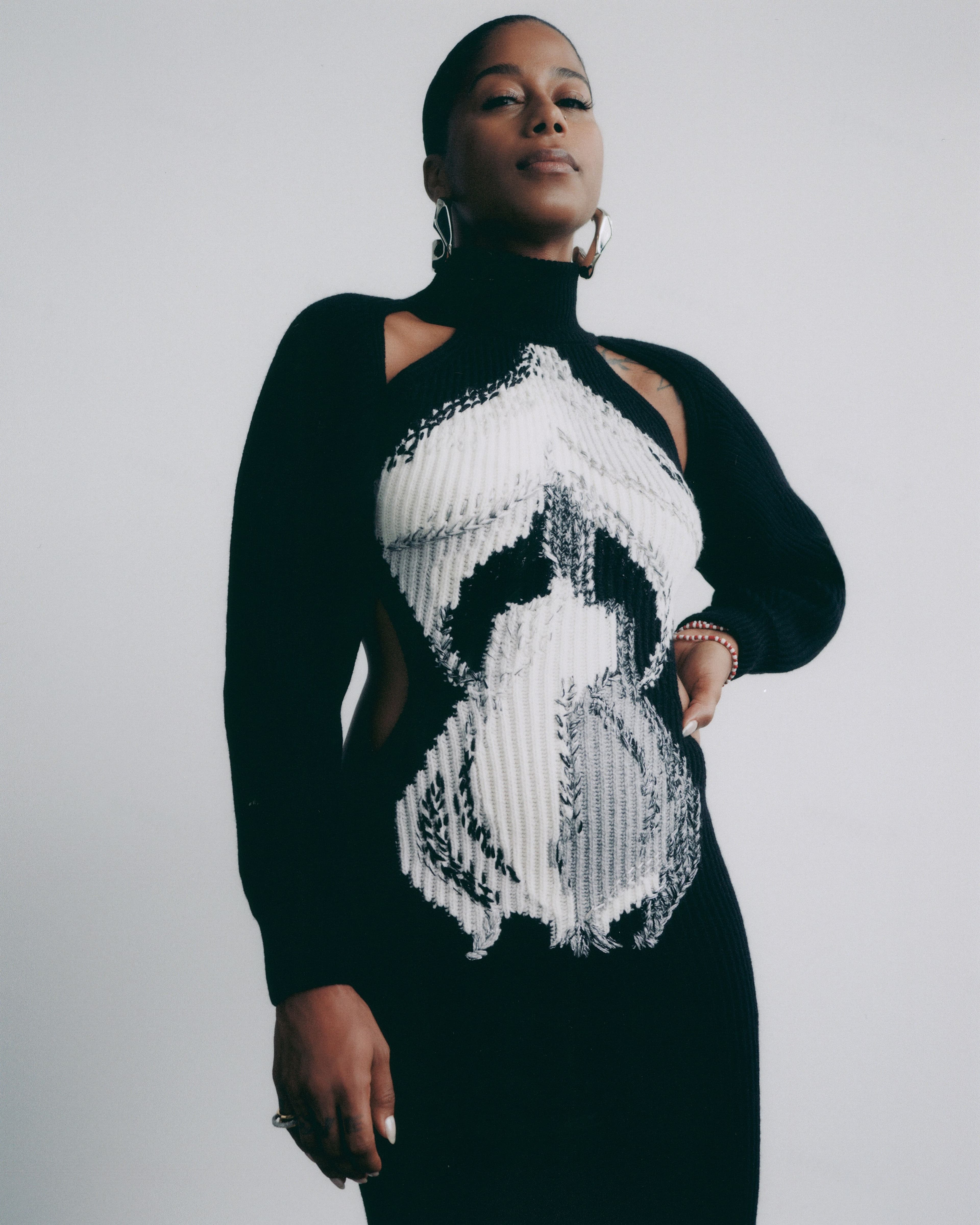
Dress and earrings by Alexander McQueen. Rings by Alexis Bittar.
To experience Monet’s poetry is to get a glimpse into how deeply human beings can observe and care for each other. She gleaned these skills as a child in East New York, where she spent summers watching people and listening to them converse with her Cuban grandmother, a santera who would sit on her front porch “in a beach chair/agitated by humid spirits and smoke“ blowing “ghosts from her lips,“ as Monet describes in “if you ever find yourself on the j train.“
Reading fascinated Monet; she loved the way it allowed her mind to wander, imagine and create, and hear and witness other voices and perspectives. She also loved the way those around her navigated storytelling and the way they wielded words with rhythm and musicality. Music caught her attention too, but it was the way words could shift her orientation to the world, like twisting a kaleidoscope, that called to her. “I wanted to make people feel the way that poets made me feel. I gravitated towards that feeling and I think it just followed me wherever I went to the point where it was an obsession,“ she says.
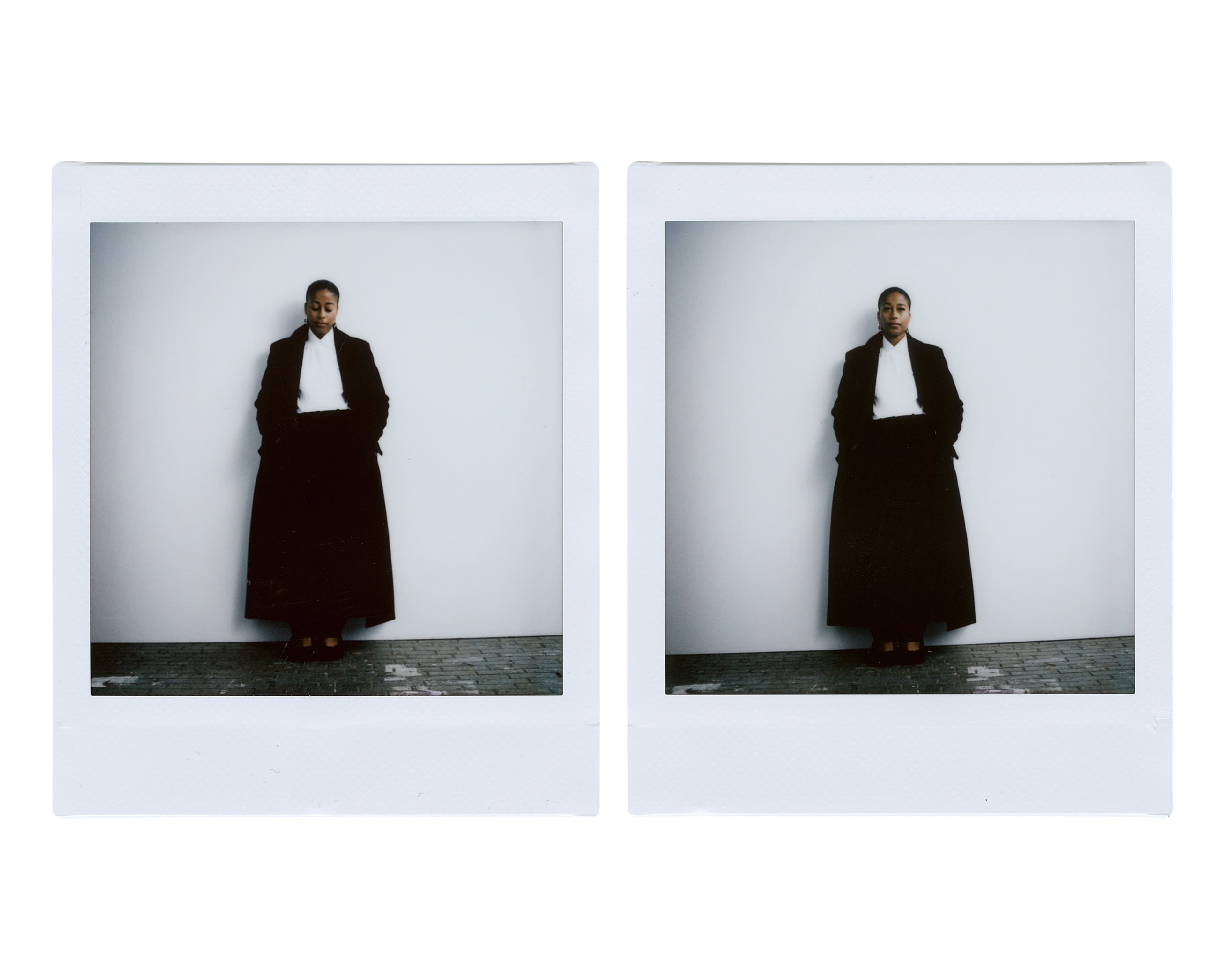
Coat, pants, and shoes by Stella McCartney. Shirt by Brioni. All jewelry by Alexis Bittar.
She became a “devotee of poetry,“ as she recalls. At nineteen, she became the Nuyorican Poets Café Grand Slam Champion—the youngest person ever to do so. After graduating with her MFA at the School of the Art Institute of Chicago, she released two poetry collections and then a full book, My Mother Was a Freedom Fighter. She moved to Miami, where she co-founded the recording studio and community space Smoke Signals with umi selah. Then she moved to Los Angeles, where she recorded her debut album over seven days during the pandemic, flanked by the likes of Chief Xian aTunde Adjuah on trumpet, Weedie Braimah on djembe, and Marcus Gilmore on drums. She released the album earlier this year.
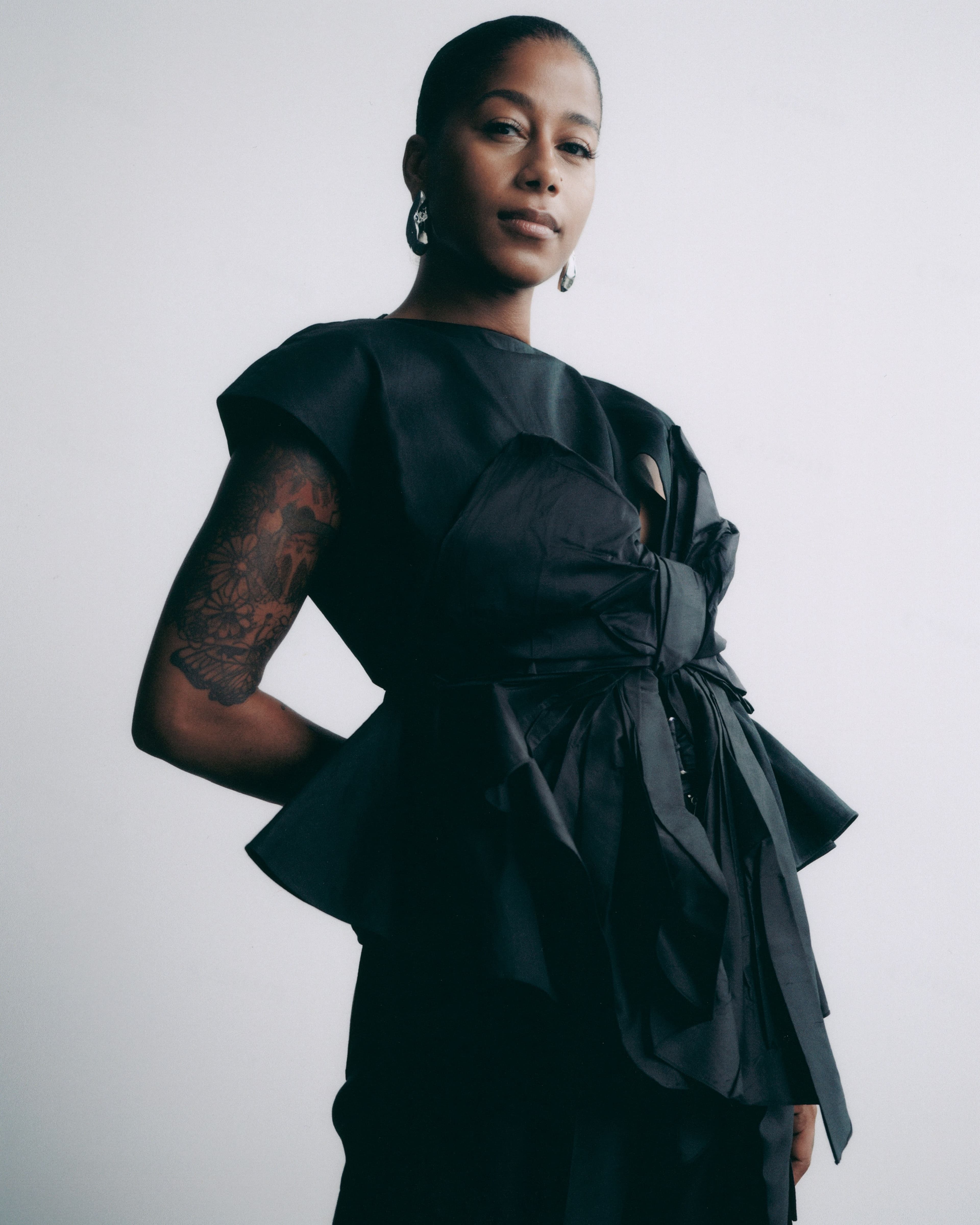
All clothing by Christopher John Rogers. Earrings by Alexis Bittar.
When the poems do what they do is a kit for self-prescribed healing—thirteen tracks for the listener to draw on depending on which part of the heart or soul needs a bit of extra care. The mood flits between glistening epithets of love and gratitude, unflinching statements on why the world is the way it is, and joyous reminders of why we should still care. “For sonia,“ a loving ode to the poet Sonia Sanchez, should be a requisite track for those who dream of a better world; “what makes you feel loved?“, spoken by the artist Lonnie Holley in response to the titular question, is a lesson in listening as an act of care. And, of course, laughter is a necessity for whatever the future may bring: “Black joy/joy is the will/is the dimple that has endured,“ Monet says on “black joy“ before later slipping in the line, “Joy/is yo mama jokes until it’s yo mama.“
To listen to when the poems do what they do is to hear reverberations of Audre Lorde and the Last Poets in her words, to feel the imagination called to envision a different version of the world. Monet defines herself as a surrealist blues poet, tracing the lineage of her work to the poets, blues artists, and Afro-surrealists before her—the surrealists who grappled with the “subconscious and the psychic interventions...necessary for us to drastically shift the conditions of our material lives,“ as Monet describes it.
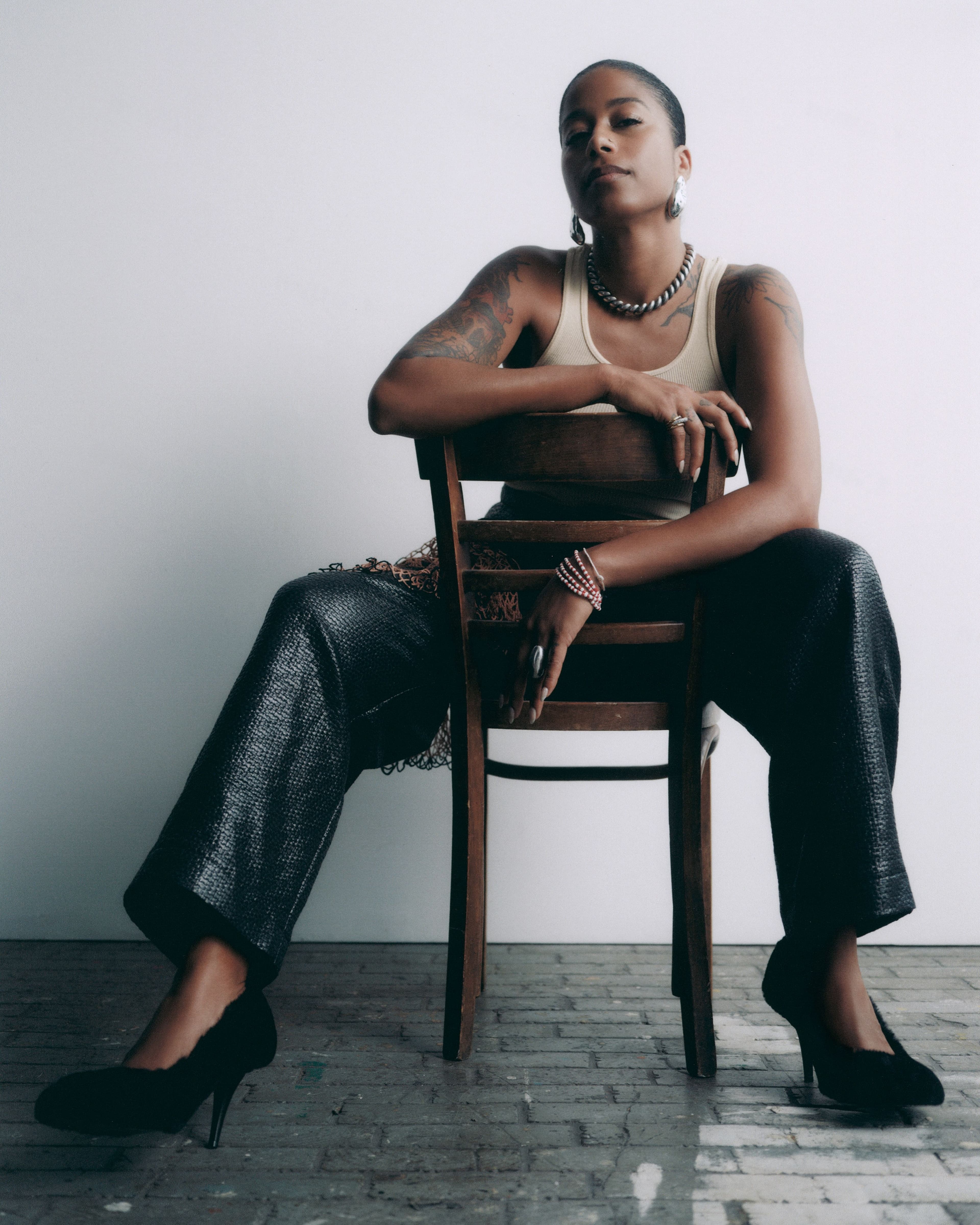
Top, stylist’s own. Pants by Diotima. Shoes by Stella McCartney. All jewelry by Alexis Bittar.
“I want to believe that a poem is always necessary,“ she adds. “The poet is really a person that understands that poetry is less about writing a poem and it’s more about the integrity, the approach, the practice towards all things that one does.“
By the time we spoke, she had shared this approach in New York, Richmond, Amsterdam, and London, and she was in Perth performing at the Fremantle Biennale, processing what it means to have a week of sold-out shows on the other side of the world. “I still am completely shocked that people care about poetry with all the things that are in our society to distract us from the very true function of what poetry has to offer,“ she says.
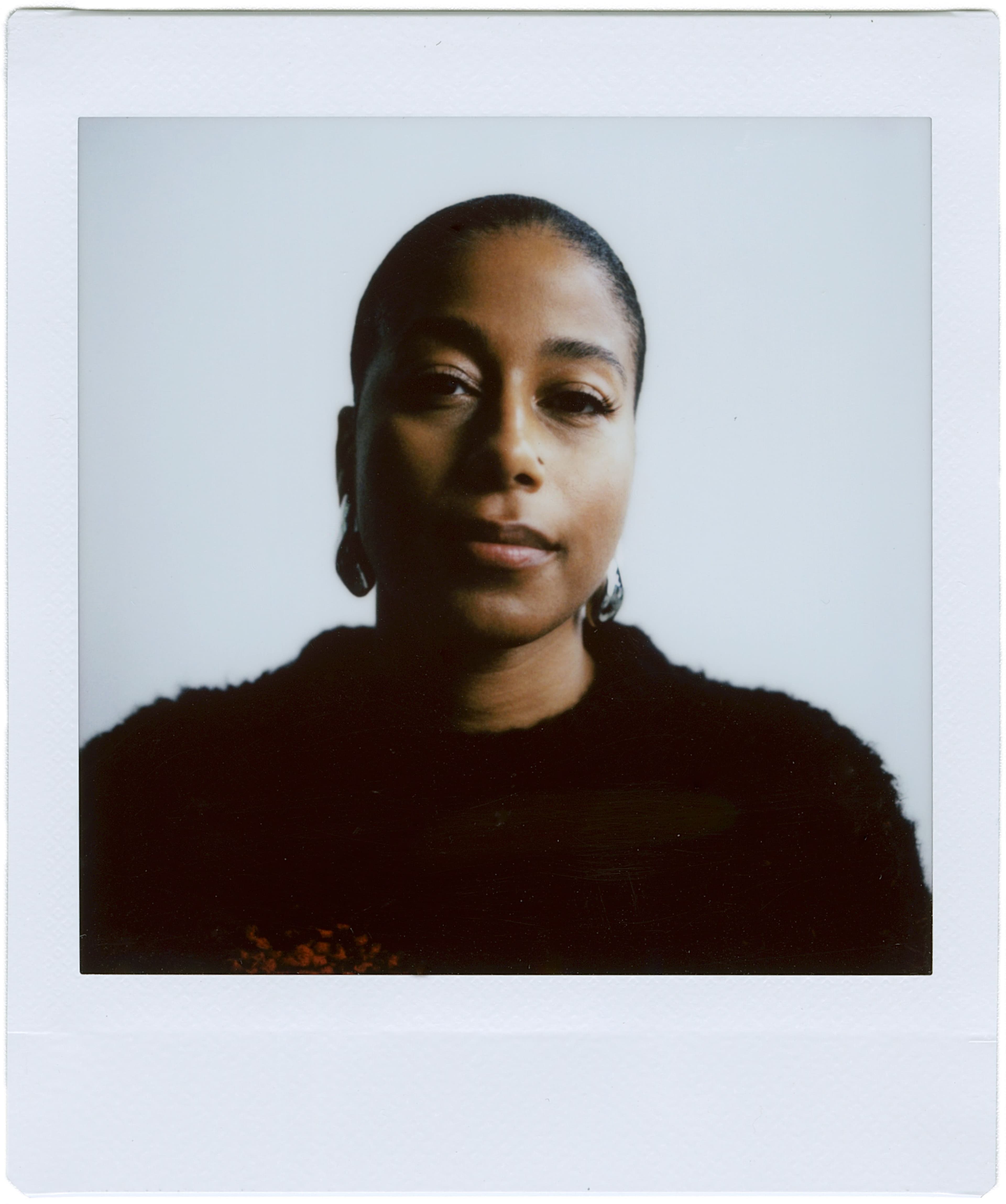
Sweater by Stella McCartney. Earrings by Alexis Bittar.
“As you become more successful as an artist—what becomes utterly terrifying, but also celebratory and beautiful and profound—is that like, ’Oh wow, this thing I’m doing might actually matter,’“ she says. She described feeling like the title ’poet’ was almost as a ruse allowing her to spend her days “in the love of language and the liberatory practice of exploring the interior world.“
“The revelation for me is like, ’Oh yeah, this is a service and something in it is giving people the courage to keep going, to keep committed, to show up, to love, to assert their humanity, to be present,’“ she adds. “But I also want to just leave room for the fact that I’m struggling with observing what humans have done to the planet and have done to each other.“
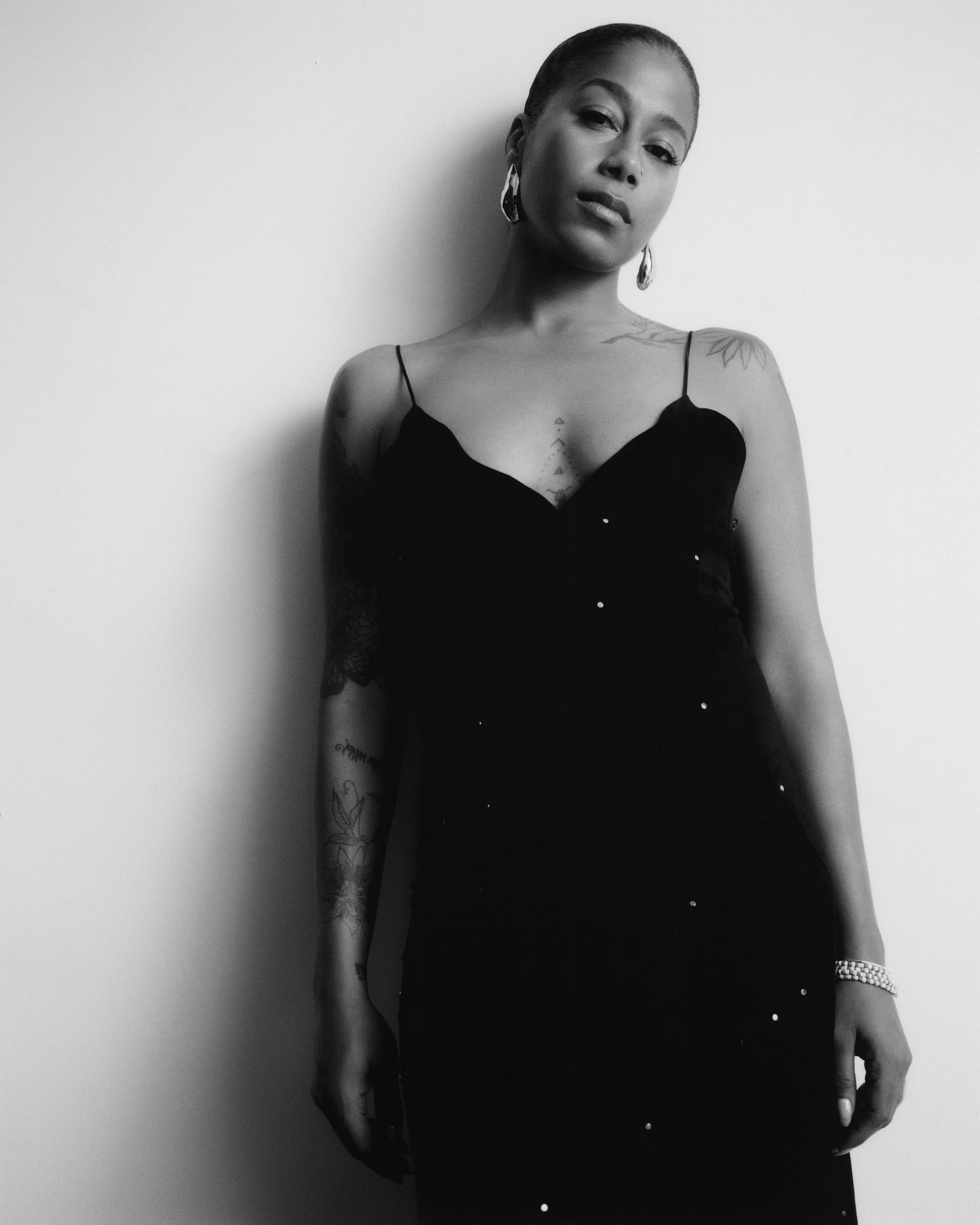
Dress by Chloé. All jewelry by Alexis Bittar.
For Monet, poetry is not just an art form, but a way of living, of finding, creating, and building a way through the world. “Every day that I exist, I’m still discovering the poetry of being and where poetry expands [the act of] being alive—and where its limitations are, if there are any. I don’t know if I always even have words for the poetry that I am experiencing and living,“ she continues. “I think just being human is poem enough,“ she says. “And that’s all we can ask for because ultimately we all must go with this thing that we’ve created together.“
When the poems do what they do is out now.
As a nonprofit arts and culture publication dedicated to educating, inspiring, and uplifting creatives, Cero Magazine depends on your donations to create stories like these. Please support our work here.
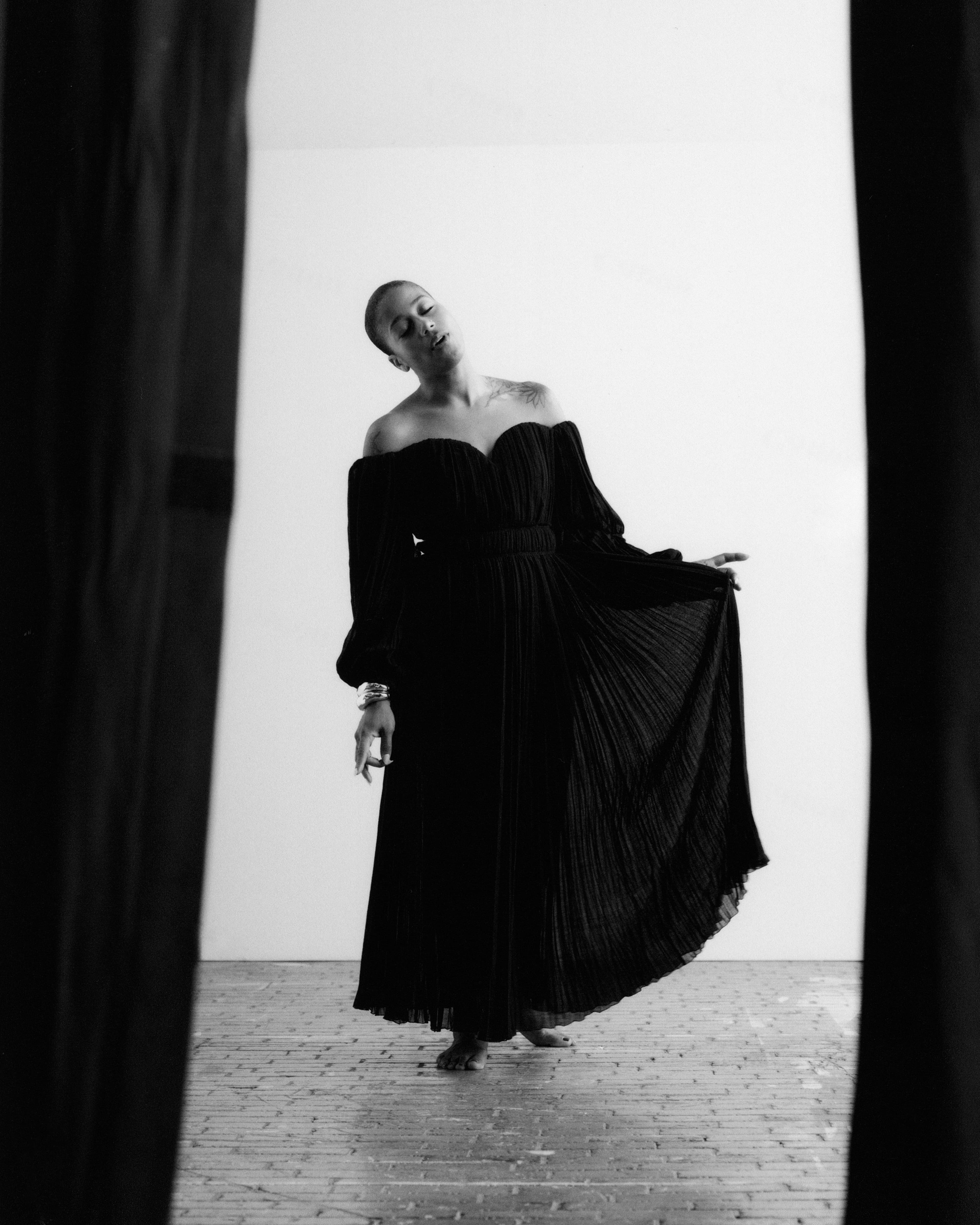
Dress by Chloé. All jewelry by Alexis Bittar.
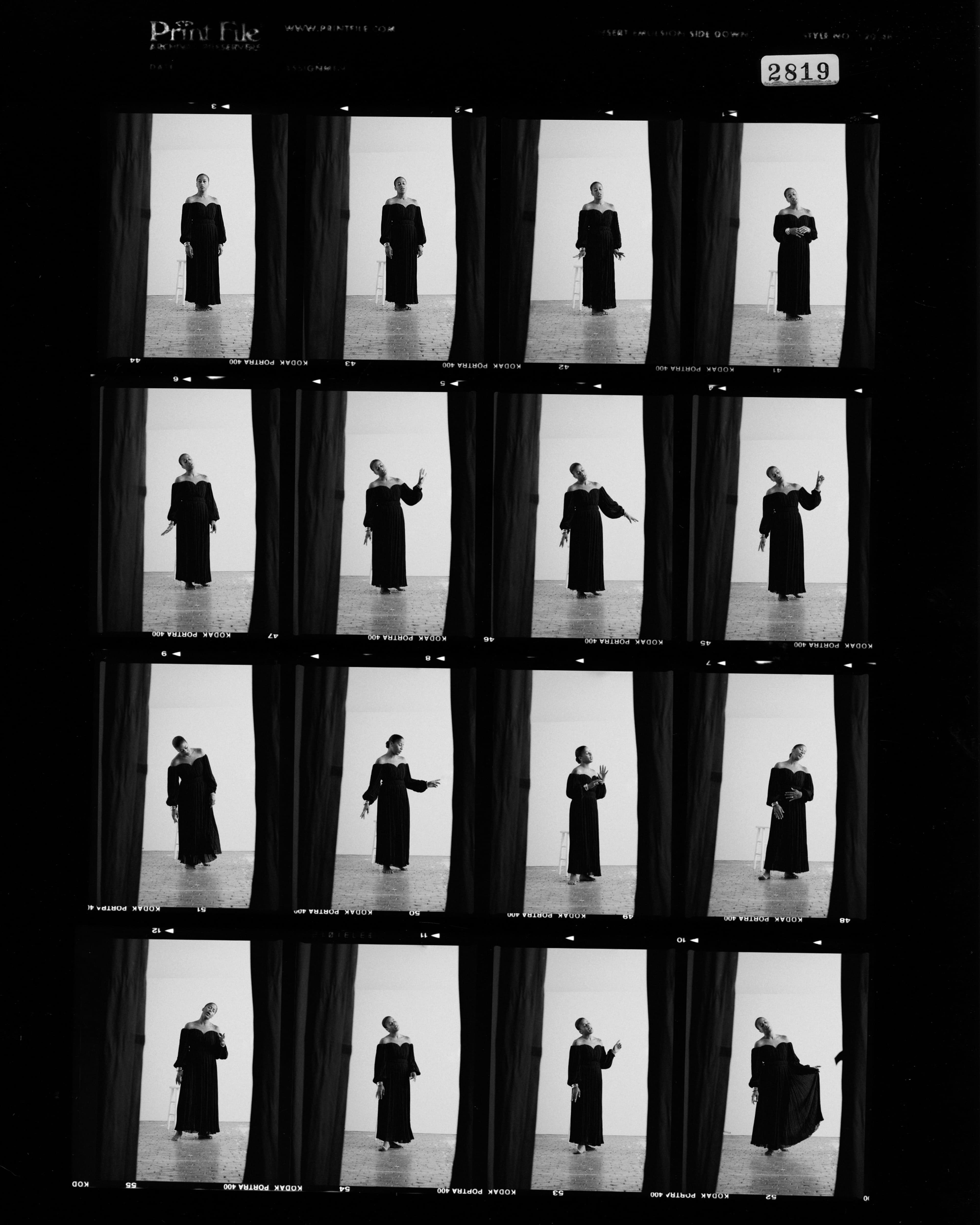
Dress by Chloé. All jewelry by Alexis Bittar.
As a nonprofit arts and culture publication dedicated to educating, inspiring, and uplifting creatives, Cero Magazine depends on your donations to create stories like these. Please support our work here.






